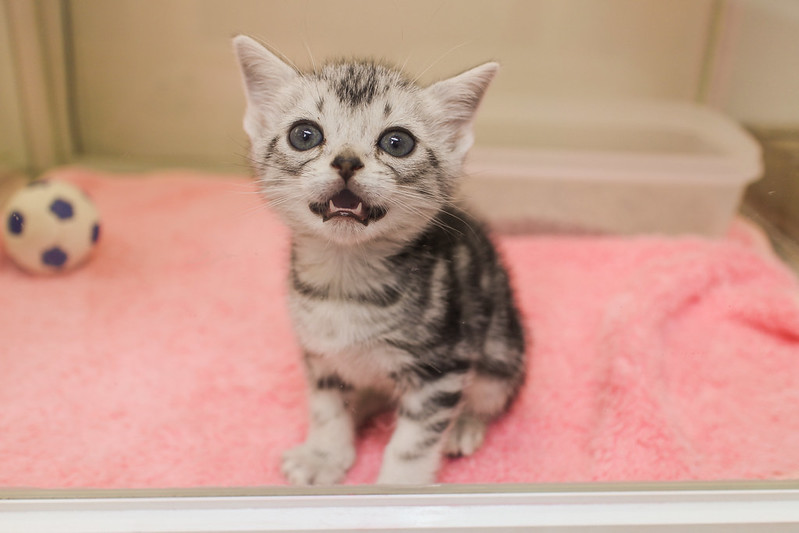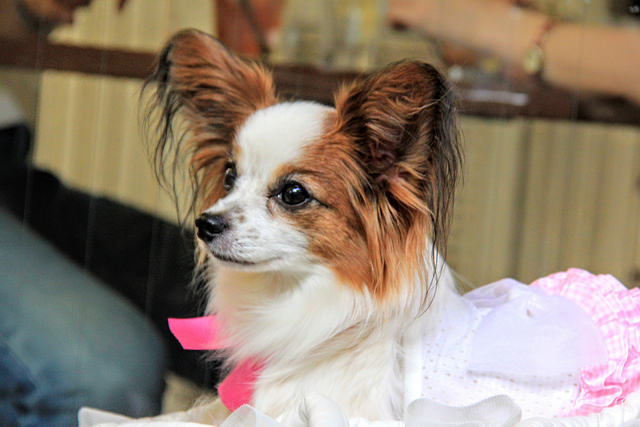Apr 30, 2020
Getting a Pet in Nagoya
Nothing completes a family like an additional member, in the form of a pet. Whether a cat, dog, or something less orthodox, it can be really nice having a companion around the home.
Pets in Japan
The most popular pets in Japan are cats and dogs. Due to space restrictions in Japanese homes dogs tend to be quite small. It is uncommon to see larger breeds like retrievers or German Shepherds, particularly in the cities. Other animals such as goldfish and terrapins are also popular, as well as more unusual animals. You can sometimes see people taking ferrets to the park, and I have even seen someone in my neighborhood walking a hamster on a leash.
Buying a pet in Nagoya
In most towns and cities – particularly in shopping centers such as Aeon – you can find pet shops with lots of animals for purchase. The most common stores are Kojima Pets, Coo and Riku, and Aeon Pet. Of course, this being Japan, cuteness sells, and you will find all manner of adorable animals, especially cats and dogs. When it comes to dogs, breeds are very important, so you may find many stores tailor towards the fashionable breed of the day (toy poodles and dachshunds are particularly prevalent at the moment). Animals most in demand can be expensive – for example, the cat in the image is going for 98,000 JPY – and for pure breed cats and dogs it is typical to pay upwards of 300,000 JPY. These stores generally provide a “warranty” against sickness and death within the first year, as well as discounts on veterinary treatments.
A downside of a breed’s popularity is that some unscrupulous breeders have been known to interbreed animals causing deformities. I know of people who have purchased kittens at pet stores, only for them to die within weeks. The pet store should be able to provide breeder details and you can check out where your animal comes from.

Below are a few more pet stores in the central Nagoya area.
Puppy Land Pet Shop
In Kamimaezu, Puppy Land is, rather confusingly, a cat and kitten specialist. They provide aftercare services, including consultation on any discipline issues you may have.
Where: 1 Chome-1-6 Kamimaezu, Naka Ward (map)
Website: pet-ala.jp
Oshima Hama Breeder
Dealing primarily in dogs and puppies, this breeder offers you the opportunity to meet the ‘parents’ of your choice. If you wish to do so, please call in advance to make an appointment.
Where: 2 Chome-1-15 Nagono, Nishi Ward (map)
Website: breeder-navi.jp/breeder/1401
Nyan Love Pet Shop
‘Nyan’ is the Japanese word for ‘meow’, and Nyan Love Pet Shop claims to have around 5,000 kittens. Dog breeds, available from their sister store One Love, are generally of the small variety, including chihuahua, toy poodle and pomeranian, as well as popular mix-breeds such as chiwax and poochie
Where: Nyan Love, Don Quijote 2F, 4 Chome-5-5 Sanno, Nakagawa Ward (map)
Website: pet-onelove.com
Where: One Love, Higashi Ward, Tokugawacho, 1402 Tokugawa Building 1st floor (map)
Website: pet-onelove.com
Animal shelters
 Perhaps due to the Japanese desire for things that are both cute and brand new, animals that are abandoned and housed in shelters tend not to be adopted. It is a sad fact that in 2010 (the latest available figures), of the 204,000 animals that were taken to animal shelters, 82% were euthanized (this compares with less than 6% of the 126,000 dogs sheltered in the UK). This means that shelters have many animals to be rehomed, and if you are not insistent on getting a young animal, adoption can be a cost-effective and humane way of taking in a pet.
Perhaps due to the Japanese desire for things that are both cute and brand new, animals that are abandoned and housed in shelters tend not to be adopted. It is a sad fact that in 2010 (the latest available figures), of the 204,000 animals that were taken to animal shelters, 82% were euthanized (this compares with less than 6% of the 126,000 dogs sheltered in the UK). This means that shelters have many animals to be rehomed, and if you are not insistent on getting a young animal, adoption can be a cost-effective and humane way of taking in a pet.
- Animal Walk Tokyo has connections with several adoption shelters, as well as holding events for non-adoption related issues.
- Animal Refuge Kansai (ARK) was set up by Elizabeth Oliver and even allows for short term adoptions.
- Japan Animal Trust is a non-profit organization based in Osaka.
- Dog Shelter (Japanese) Dog Shelter group is a small operation made of multiple families who rescue animals from government shelters.
- Animal Life Matters Association (Japanese) is a relatively new shelter in Katsuhika Ward, Tokyo
- Japan Cat Network, as the name suggests, is a shelter for cats, by far the most commonly abandoned animal.
Etiquette and Care
You are required to walk your dog on a leash at all times. If you live in an apartment building you should carry your pet in the communal areas and elevators at all times. You must also clean up after your dog when out walking.
Things to consider when getting a pet in Japan
- Always check the terms of the lease of your home BEFORE you get a pet. Some, if not many, landlords allow pets, but MOST do not. Having an unauthorized pet may void your lease and cost you a LOT of money.
- One thing you may want to consider though is that bringing a pet with you to Japan will significantly impact the selection of apartments and housing available to you. Less than 10% of available properties will allow you to keep even a small dog. Big dogs and cats are a real challenge to accommodate in Japan, and will seriously limit your options, as in maybe 2% of all properties will allow them.
- Vaccinations, especially for dogs, are required by law. When you adopt a dog, you must report it to your local municipal office (kuyakusho, shiyakusho).
- Is your pet a good fit for your home? While a labrador may have had plenty of garden space in your home country, could you say the same for where you live now?
- What will you do when you return to your home country? Can you take your pet home? Check out the quarantine laws.
- Does your insurance cover an animal? If not, you may need to enquire after separate insurance.
Image: by cattan2011 via flickr.com [CC by 2.0] – Modified
Image: by Frances Ellen via flickr.com [CC by 2.0] – Modified


About the author